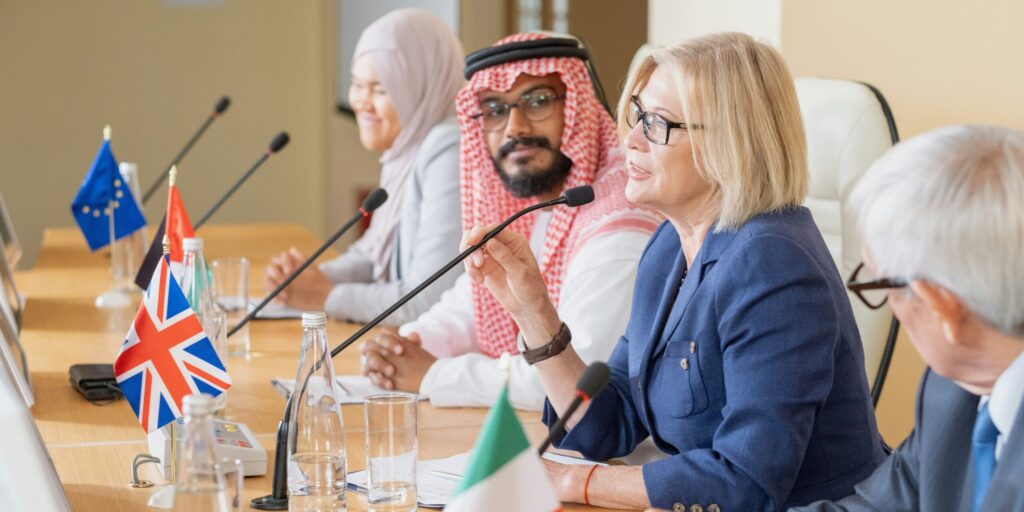The G7 summit kicked off in Canada on June 16, 2025, with President Donald Trump meeting with global leaders, including Canadian Prime Minister Mark Carney, as part of the high-profile international talks that are expected to shape the future of trade, security, and diplomacy. As the world grapples with escalating trade tensions and the ongoing crisis in the Middle East, these discussions have never been more critical.
Key Themes of the G7 Summit
The summit’s agenda includes key issues such as trade negotiations, the Iran-Israel conflict, and global economic recovery post-pandemic. These discussions come amid significant political pressure within the U.S., where President Trump faces increasing scrutiny over domestic policies and an electoral cycle heating up as 2028 draws nearer.
Trade and Economic Talks with Canada
One of the most anticipated discussions during the summit was between President Trump and Canadian Prime Minister Mark Carney. Both leaders have acknowledged the importance of maintaining a balanced trade relationship between the U.S. and Canada, but significant challenges loom. The Trump administration’s stance on trade tariffs remains a point of contention, with Carney and other leaders expressing concern about the potential consequences of tariffs on the North American Free Trade Agreement (NAFTA) and the global economy.
Sources close to the talks reveal that the two leaders discussed potential amendments to trade rules, focusing on increasing domestic production of goods and reducing reliance on foreign manufacturing. These conversations come as the Trump administration has imposed tariffs on several countries, including China and members of the European Union, to encourage U.S. companies to move production back to the U.S.
President Trump has long advocated for such moves as part of his “America First” economic policy, but critics argue that the tariffs have led to higher costs for American consumers and strained relations with key allies.
Global Security: The Iran-Israel Crisis
Beyond trade, the situation in the Middle East has taken center stage during the summit. Tensions between Iran and Israel have escalated dramatically in recent months, following a series of missile strikes and cyberattacks. Iranian-backed militias have intensified their efforts against Israeli targets, and the U.S. has been forced to step in to mediate.
At the summit, President Trump and European leaders, including French President Emmanuel Macron and British Prime Minister Keir Starmer, discussed ways to ease tensions and prevent further escalation. However, the U.S. has insisted on maintaining a firm stance against Iran’s nuclear ambitions, even as diplomatic talks remain stalled.
Several diplomats at the summit have indicated that the U.S. is pushing for stricter sanctions on Iran, while other G7 leaders, including Germany and Canada, have advocated for a more diplomatic approach. Despite these differences, there seems to be a collective acknowledgment that the situation in the Middle East cannot be ignored.
Sources within the U.S. State Department have confirmed that President Trump is working with Israel’s Prime Minister Benjamin Netanyahu to create a “peace framework” that would involve U.S. military presence in the region. This would be aimed at curbing the influence of Iran and providing security to Israel’s borders.
Domestic Implications: Growing Tensions Within the U.S.
Back home, President Trump’s approval ratings have been impacted by various factors, including his handling of trade disputes, the economy, and domestic health policies. Despite these challenges, the G7 summit provides Trump with an opportunity to assert American leadership on the global stage.
In particular, the U.S. is under pressure to demonstrate its commitment to international cooperation. Domestic critics argue that Trump’s policies have isolated the U.S. from its traditional allies, particularly in the European Union. However, his supporters maintain that his approach to foreign policy, which emphasizes a strong America-first stance, has empowered the U.S. to take more control of global events.
In his opening remarks at the summit, President Trump reiterated his commitment to standing firm on economic issues but also called for unity in addressing global crises. “We must work together, as a G7 family, to ensure peace and prosperity for all of our nations,” Trump said, signaling that despite ideological divides, cooperation is still a priority.
The Domestic Impact of G7 Decisions
The outcomes of the G7 summit will have significant ramifications for the U.S. in terms of trade, foreign policy, and national security. Trump’s administration has indicated that any agreements made will be reviewed closely to ensure that they align with American interests.
Analysts have pointed out that the direction taken by Trump during this summit could influence U.S. foreign policy for years to come, especially with the 2028 presidential election looming. The president’s dealings with foreign leaders are seen as a reflection of his broader approach to governance, and the G7 summit is likely to shape his legacy on the world stage.
As the summit continues, global leaders are also focused on long-term goals like climate change and digital transformation, but it remains to be seen whether the meeting will result in any substantial commitments from the U.S. With significant issues like Iran, trade, and global security still unresolved, it’s clear that the G7 summit will have lasting consequences for U.S. politics both at home and abroad.


